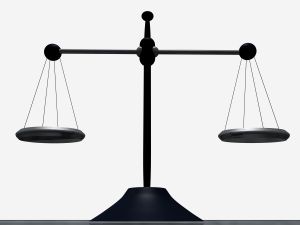
A British Columbia court has ruled that the Canada Revenue Agency (CRA) breached its duties to the owner of an RV park by imposing large penalties on him after reassessing his tax returns, but it found that there wasn’t enough of a link between the CRA’s action and his subsequent financial difficulties to hold the agency responsible for them.
On April 30, the Supreme Court of B.C. handed down a decision in the case of Irvin Leroux, who owned an RV park and campground in Valemount, B.C., in his suit against the CRA.
According to the decision, Leroux alleged that he lost everything because of negligent conduct by the agency and its employees.
The decision from Madam Justice M.A. Humphries, notes that in 1999, Leroux was assessed over $600,000 in taxes, interest and penalties. After an appeal to the Tax Court of Canada, which resulted in a settlement of $57,000; some payments and a “fairness application” to the Minister of National Revenue, resulting in the cancellation of all interest and penalties, Leroux was actually owed a refund of about $25,000, which was offset against outstanding GST, for a net result of zero. In the meantime, the court notes, Leroux had lost his business, an RV park that was also his home, and most of his property.
According to the decision, Leroux alleged that he lost everything because of the actions of employees of the tax department and he sued the CRA for negligence. He also claimed misfeasance of public office. In addition to losing his assets, which were foreclosed on and sold at a loss, Leroux says his health has suffered, and that he incurred high legal and accounting expenses, the decision said.
The decision noted that the CRA argued that it doesn’t owe a private law duty of care to an individual taxpayer. And that, even if a duty of care is owed, the CRA says its officers acted reasonably in this case, and that the deficiencies in the audits and assessments were due to Leroux’s failure to supply supporting documents and books and records.
While the CRA ultimately lost in Tax Court, it argued that the tax reassessment was not reached negligently, and that it is not responsible for Leroux’s losses as “his financial position was so poor that the loss of his business would have occurred in any event.”
The B.C. Supreme Court rejected the claims of misfeasance of public office. However, it did find that the CRA owed a duty of care in this case. “It is difficult to see how the employees of CRA could escape an obligation to be mindful of the plaintiff’s legitimate interests in conducting his affairs, and to take reasonable care to avoid doing him harm. As well, the close and direct relationship necessary for proximity exists in this case. Thus I conclude that a prima facie duty of care exists,” Humphries said in the court’s decision.
The court also found that the CRA breached the standard of care in levelling large penalties on Leroux. While the court didn’t find any breaches with the CRA’s assessments of his income, the court found that large penalties associated with the reassessment arose because Leroux was found to be “grossly negligent”. Yet, the court found “a number of problems with the imposition of the penalties in this case.”
The court suggested that while there were disagreements in how income was characterized, this doesn’t amount to gross negligence. “To call Mr. Leroux’s tax characterizations ‘grossly negligent’ is especially objectionable because… CRA now uses the complexity of the issues involved in these characterizations as a reason why their decisions on exactly the same issue could never be termed negligent,” the court decision said.
“Since CRA now takes the position that the characterization of capital loss versus revenue and the issue of ‘matching’ are difficult and complex, it cannot be said that the assumption of contrary positions by Mr. Leroux, positions that were eventually accepted as correct, was grossly negligent. To call them so, and to assess huge penalties as a result, ostensibly for the purpose of getting around a limitation period, is unacceptable and well outside the standard of care expected of honourable public servants or of reasonably competent tax auditors,” the decision said.
“In my view, the manner in which penalties for income tax were considered and assessed in this case was a clear breach of the standard of care expected of an auditor of CRA in relation to a taxpayer,” Humphries concludes in the decision.
However, the B.C. Supreme Court did not find that the breach of care led to Leroux’s financial difficulties. “I am not persuaded that Mr. Leroux has demonstrated a causal link between the negligence of CRA in imposing unjustified penalties for income tax which were part of the judgment filed against the property and the impairment of his credit, his difficulties with the mortgage, and the consequent loss of his RV park and home,” Humphries said.
The B.C. Supreme Court also found that Leroux is not owed anything for the costs incurred in fighting the CRA decision, as the cost issue was already addressed in Tax Court. And, while he may have suffered a decline in health, the court found, “there are simply too many factors that affected Mr. Leroux and which occurred during this period to find CRA liable for the state of his health — the loss of his house on Quince Street, the filing of other charges on his property, the filing of liens on his property, the problems over the property taxes, default of payments on his mortgage, the problems with the contractors, the foreclosure, all of which had nothing to do with CRA.”
Since the judge did not find a causal link between the CRA’s breach and Leroux’s losses, the action was dismissed.